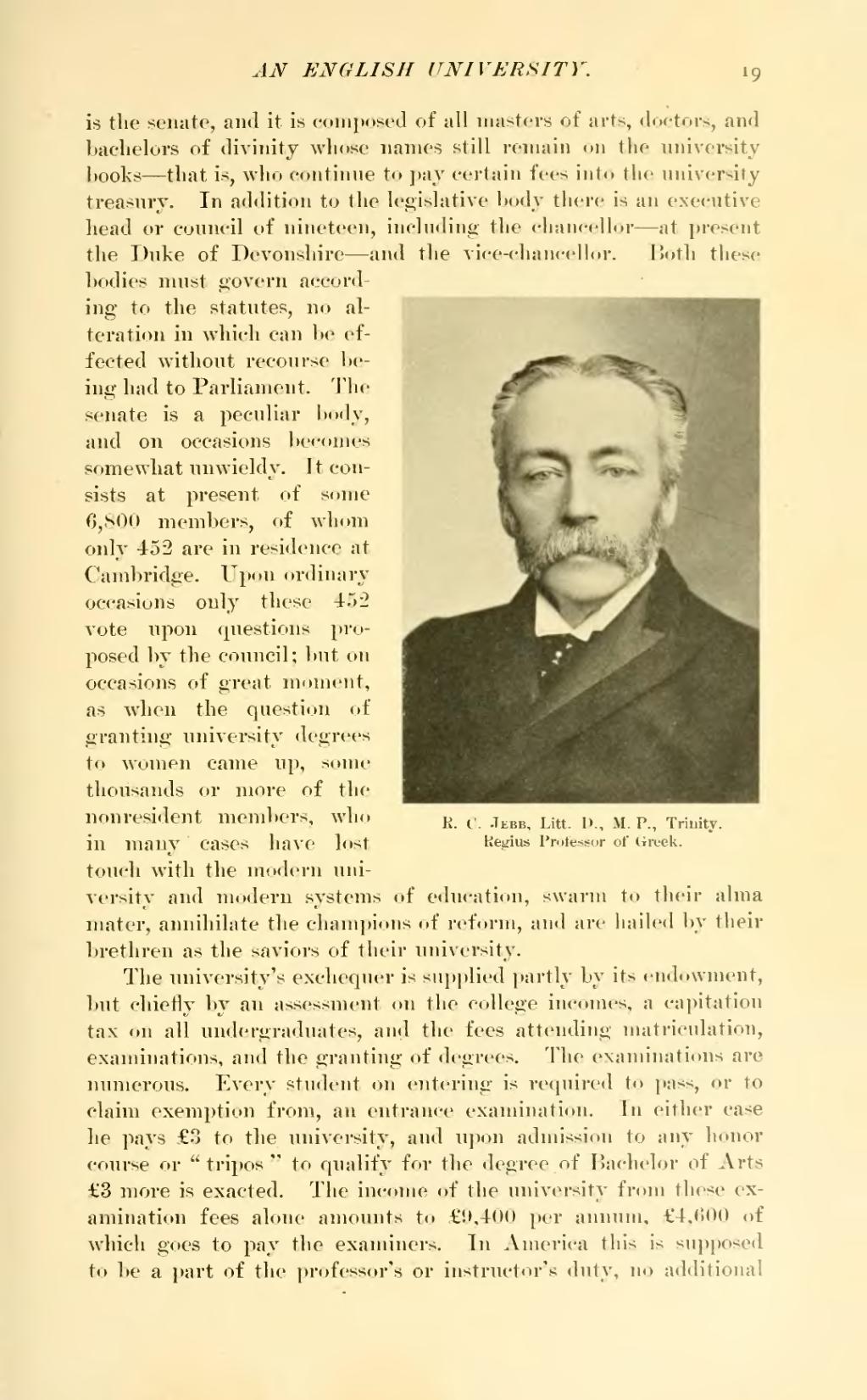is the senate, and it is composed of all masters of arts, doctors, and bachelors of divinity whose names still remain on the university books—that is, who continue to pay certain fees into the university treasury. In addition to the legislative body there is an executive head or council of nineteen, including the chancellor—at present the Duke of Devonshire—and the vice-chancellor. Both these bodies must govern according to the statutes, no alteration in which can be  K. C. Jebb, Litt. D., M. P., Trinity.
K. C. Jebb, Litt. D., M. P., Trinity.
Regius Professor of Greek. effected without recourse being had to Parliament. The senate is a peculiar body, and on occasions becomes somewhat unwieldy. It consists at present of some 6,800 members, of whom only 452 are in residence at Cambridge. Upon ordinary occasions only these 452 vote upon questions proposed by the council; but on occasions of great moment, as when the question of granting university degrees to women came up, some thousands or more of the nonresident members, who in many cases have lost touch with the modern university and modern systems of education, swarm to their alma mater, annihilate the champions of reform, and are hailed by their brethren as the saviors of their university.
The university's exchequer is supplied partly by its endowment, but chiefly by an assessment on the college incomes, a capitation tax on all undergraduates, and the fees attending matriculation, examinations, and the granting of degrees. The examinations are numerous. Every student on entering is required to pass, or to claim exemption from, an entrance examination. In either case he pays £3 to the university, and upon admission to any honor course or "tripos" to qualify for the degree. of Bachelor of Arts £3 more is exacted. The income of the university from these examination fees alone amounts to £9,400 per annum, £4,600 of which goes to pay the examiners. In America this is supposed to be a part of the professor's or instructor's duty, no additional
